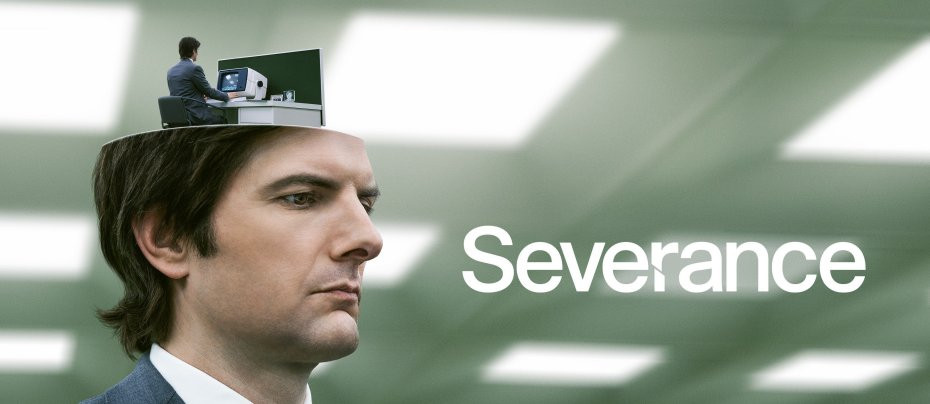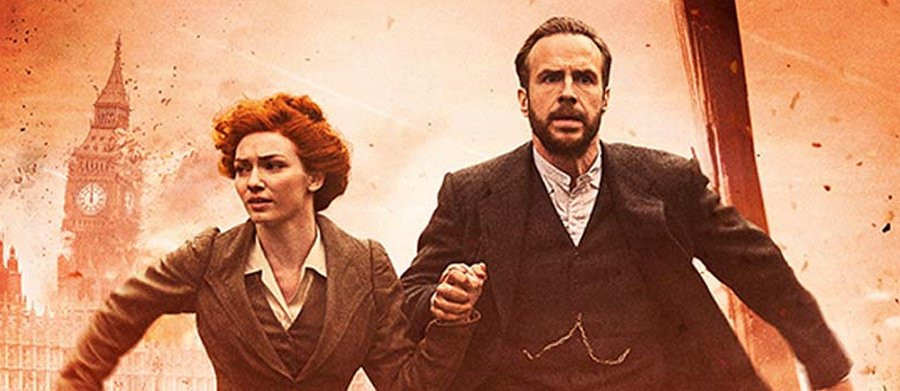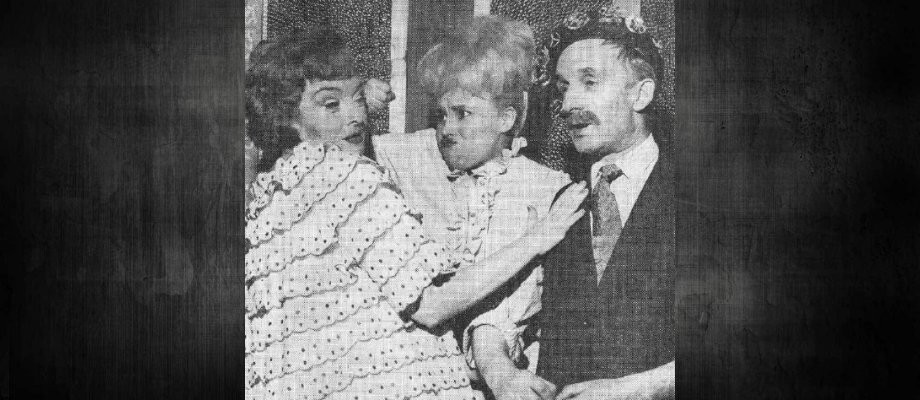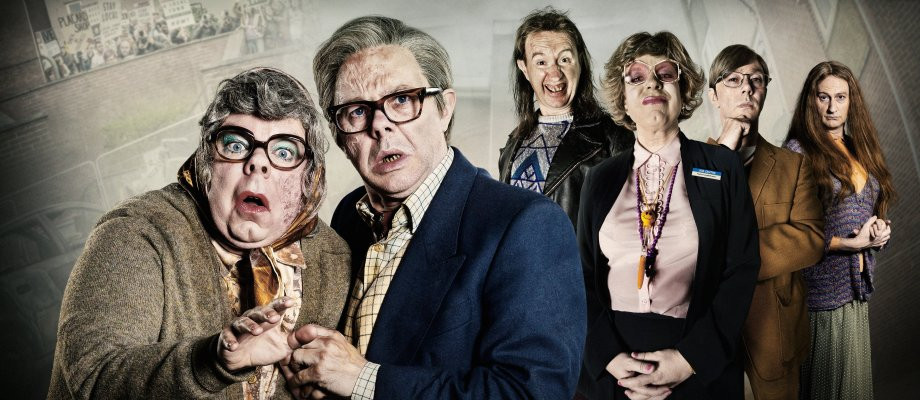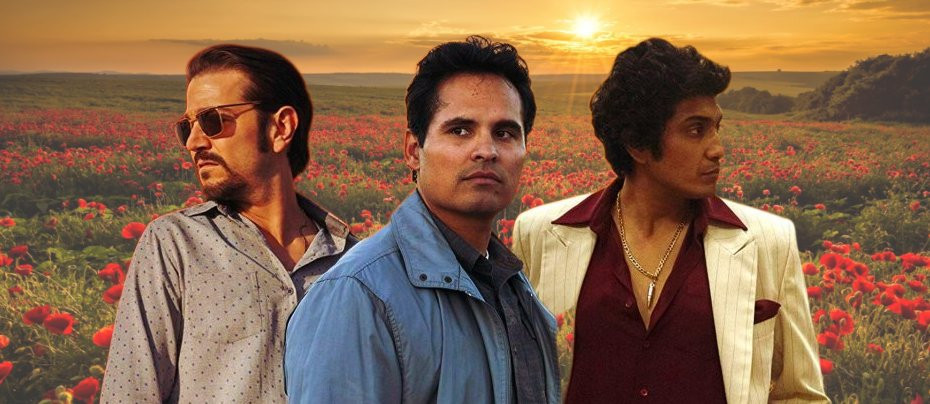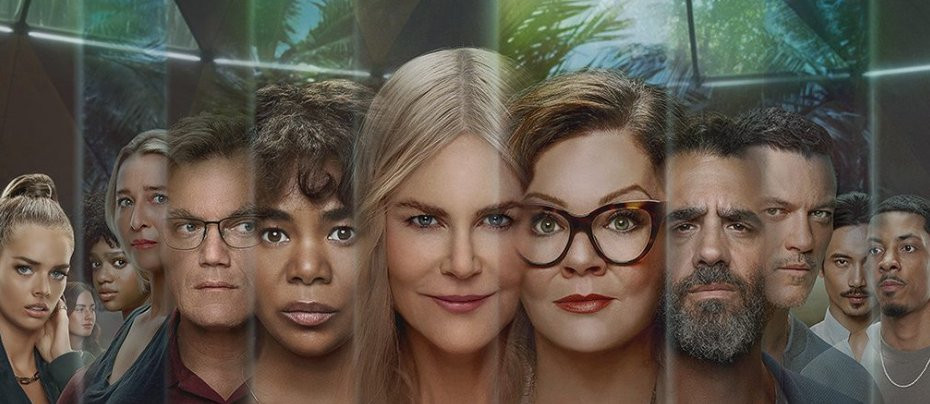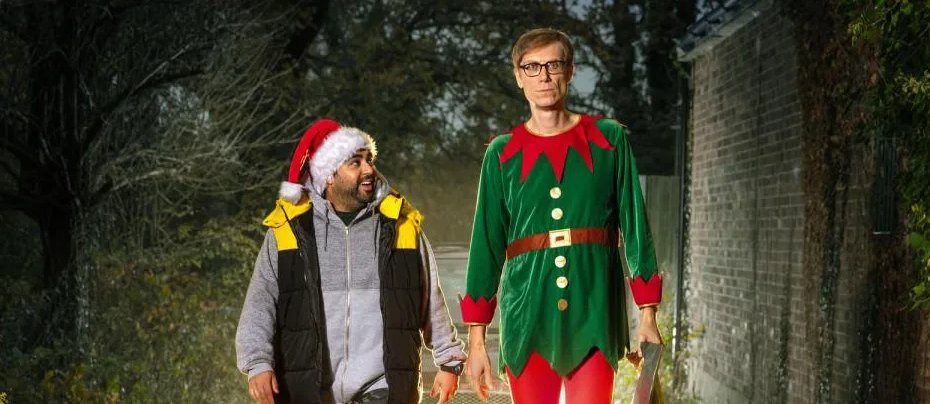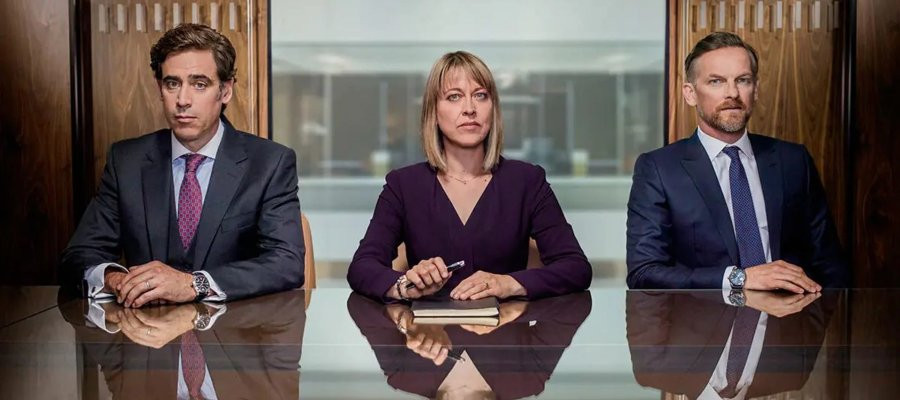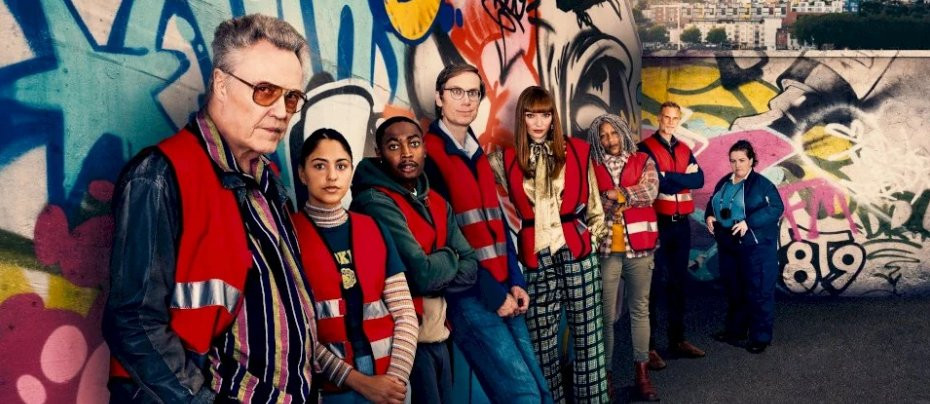
The Outlaws
2021 - United KingdomThe BBC comedy drama The Outlaws will probably be better remembered than most of its type for two reasons - luring the legend that is Christopher Walken across the Atlantic to do television and then having him destroy an artwork that the British media, with their usual reliability, claimed was worth "up to ten million."
The series was filmed in Bristol, the home town of its co-writer and co-star Stephen Merchant, and also of the street artist known as Banksy. It seems that Banksy sneaked on to the location and painted one of his trademark rats on a wall, knowing it would be painted over by Walken in the final scene. We are given to understand that Merchant informed both Banksy and Walken in advance what was intended, and both were apparently fine with it. Banksy has used the destruction of his art to make a Post-Modernist statement before. He arranged for his 'Girl with Balloon' to be shredded automatically just after being sold for over a million pounds. The remains were later sold, as 'Love is in the Bin,' for over eighteen million. If his intention was to satirise the modern art scene, it proved to be beyond satire.
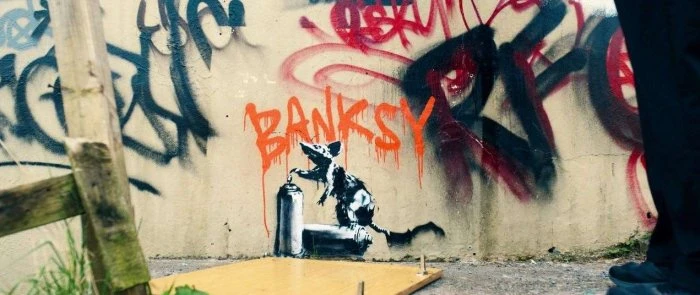
It is a very unofficial convention that a principal actor be allowed to take a prop or something from the set of a production as a souvenir. Walken should have taken that wall. Although the ten million figure for the rat was nonsense, a Banksy rat painted over by Walken with a good story behind it might well make seven figures in the current market.
Anyway, this is a brief spoiler light overview of the first season of the show itself. A second season was filmed at the same time - the extent to which this means concurrently or consecutively only the producers can say - with several important plot threads left hanging at the end of the first.
The plot itself bears a curious resemblance to The Breakfast Club. We are presented with an unlikely assortment of characters - the swot, the street kid, and the popular girl, together with the more grown up caricatures of the company director, the left wing activist, the loser lawyer, and the ageing con man - thrown together by doing "community service" (which is apparently, rather insultingly, now called "community payback," despite it being unclear what exactly some of the characters have taken and from whom that requires paying back: no wonder a couple come to the conclusion that they are the ones entitled to a payback).
As in The Breakfast Club, there is a danger that these characters could become stereotypes. Indeed, the script makes the same mistake as The Breakfast Club by pointing to the elephant in the room in this respect. However, the danger is avoided as the story develops and we learn that there is more to each of them than obvious clichés.
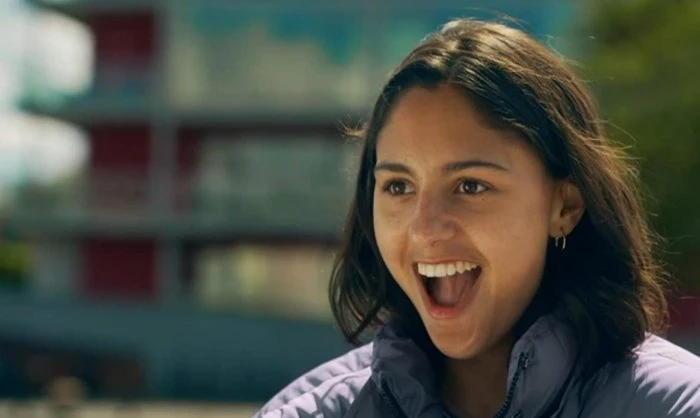
They are brought to life by the assured performances of both experienced and younger actors, who all develop what could have been stock roles into fully rounded personalities. The real "break out" is Rhianne Barreto as Rani, a very intelligent young girl who has been offered a place at Oxford but who feels she is living the life her parents want her to live. It could have been a very bratty part, but Barreto is charming and even a little poignant. We understand her dilemma: her parents are very controlling, but she loves them, and she is well aware of the hardship they suffered in their early lives and the sacrifices they have made to give her better opportunities.
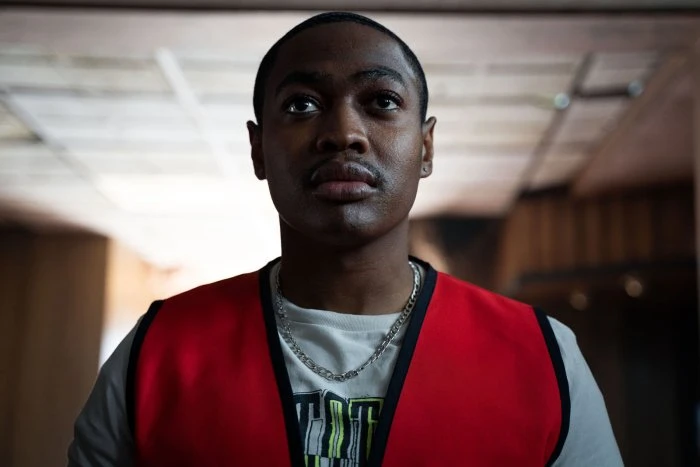
Gamba Cole is likeable, perhaps too likeable, as the boy from the other side of the tracks to whom she is drawn, and who is trying to bring up his fifteen-year-old sister (a precocious Aiyana Goodfellow) on his own. Darren Boyd is the outwardly arrogant businessman, John Halloran, but when we see behind his mask, we discover that he is in a position similar to Rani's, despite being more than twice her age: he is completely in thrall, psychologically and financially, to his father, a self-made man who built the business his son is nominally meant to be running.
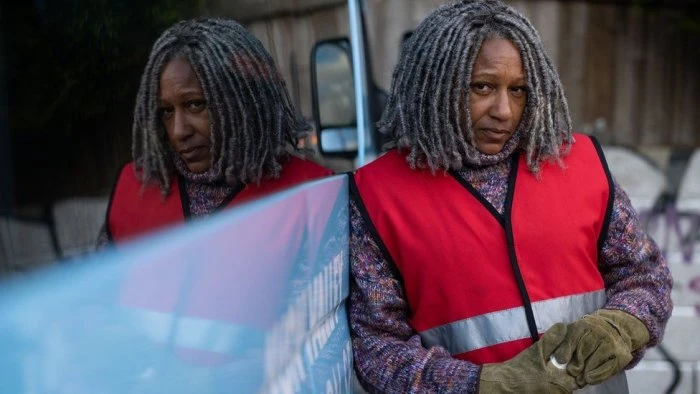
At first left winger Myrna (Clare Perkins) seems the polar opposite of Halloran, but they have much in common: both have done what they thought was right with their lives only to find they are not respected for it and are now uncertain of their places in the world.
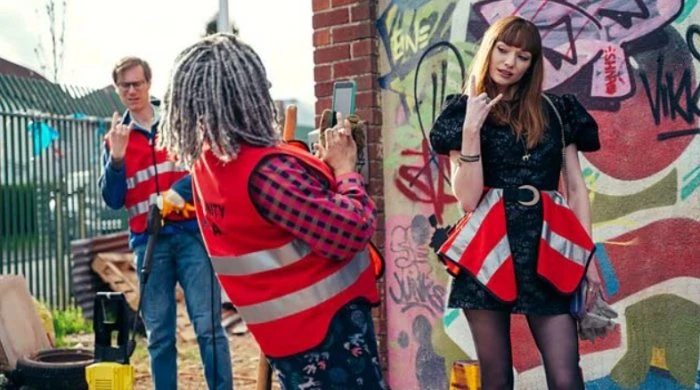
Eleanor Tomlinson, Demelza in Poldark, enjoys herself as aristocratic party girl and "social media influencer" Lady Gabby. One of those people famous simply for being famous, she is entitled and intellectually superficial, but not wholly egotistical: beneath the false glamour is a wounded human being who tries to be kind, in spite of a tendency to temper tantrums, and would quite like to do some good, so long as it does not interfere too much with her lifestyle.
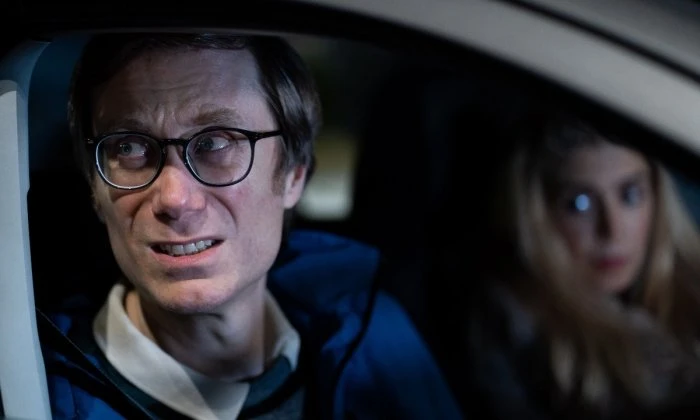
Merchant himself is wholly credible as Greg, the world's worst solicitor - or maybe not: he is so credible that he might remind many of someone they have met in the legal profession in real life. There are in fact a lot of Gregs out there.
It is to Walken's credit that he evidently did not insist, as he might have done, on a big "star" role that dominates the production being written for him, but was content to be just one of the ensemble. If anything, his character's arc is the most perfunctory. A career criminal, and negligent father and grandfather, he is forced to stay with his daughter and her children as a condition of probation. Is he taking advantage of them, as he always has, or has he changed?
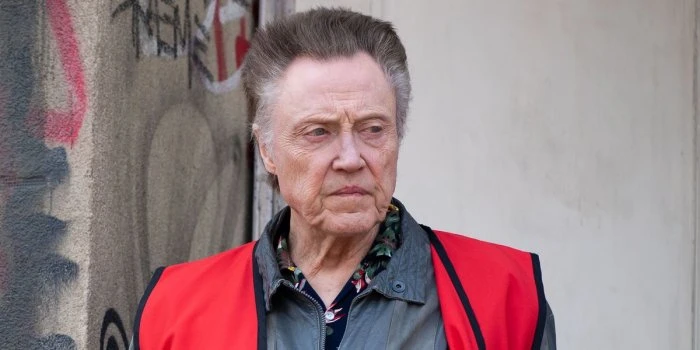
Walken's mere presence is enough to add a touch of class to anything, even a "beat" music video. It is, however, rather odd that the actor who plays him briefly in flashback must be the only person in the Western world who cannot do a Christopher Walken impersonation.
The supporting cast is otherwise very strong. Ian McElhinney, Ser Barristan Selmy in Game of Thrones, is suitably alpha as Halloran Senior. Nina Wadia, from Goodness Gracious Me' knows what the part demands as Rani's more casually domineering mother, while still retaining viewer sympathy and an understandable point of view. Sam Troughton, of the Troughton Dynasty, strikes an authentic note as the senior community service supervisor happy to get twenty-five grand a year to watch other people work. Claes Bang, the Danish actor who made a big impression in the recent Dracula, is duly menacing as the Mr Big of a "county lines" drugs operation. Michael Cochrane, from Sharpe and many other places, turns up briefly as the Senior Partner of Greg's law firm. Richard E Grant is appropriately Richard E Grantish as Lady Gabby's semi-detached father, "the 16th Earl of Gloucestershire," sic.
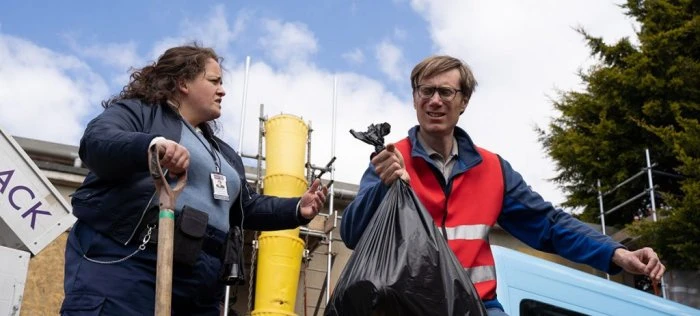
Best of all, and not so much a supporting player as the Eighth of our Magnificent Seven, is Jessica Gunning as Diane, their community service supervisor. Overweight, bereft of social skills, and not bright enough to realise that, she revels in the little bit of authority her job gives her over other people. She thinks the fact that they compare her to Hitler is a tribute to her leadership skills. Her impossible dream is to become a police officer and when the opportunity arises, she inserts herself into the investigation whole heartedly. She becomes a cross between a West Country Melissa McCarthy and the Little Engine That Could, and we find ourselves liking her more than we should. Gunning steals every scene she is in and comes close to running off with the whole show in spite of some very strong competition.
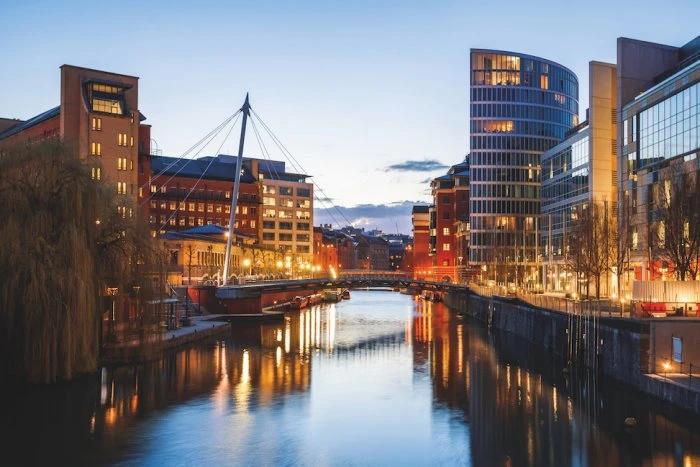
The other big star of The Outlaws is Bristol. Its hills, its architecture, its history, and a certain laid back, slightly seedy, run-down charm have together made it one of the most telegenic cities in Britain. The production makes clever use of its locations and the whole thing is photographed in a bright, colourful style that gives the whole thing the cheerful air of a 1960s caper film.
The script seems to aspire to the same tone and usually succeeds. Sometimes it does not. The writing team is headed by a very odd couple, Merchant, best known as a long-time associate of Ricky Gervais, and Elgin James, co-writer of the gritty Latino biker drama, Mayans MC. As a result, it feels like part cosy "sitcom" and part exploration of the dark underside of urban life. There is a definite inconsistency in this combination. Unlike "situation comedy" or farce, comedy drama requires that the dramatic aspects feel realistic if the comedy is to have its full impact, and there are aspects of The Outlaws that do not ring true.
Bristol is generally a very friendly place - the Bristolian accent is probably the least intimidating in England - but it has its edge. Drugs and racial conflict have long been major problems there. The Outlaws touches on this but, for the most part, in such a sanitised form that it feels out of place. On top of this is the usual contemporary weakness that political characters and issues are reduced to cartoons. This may be partly because television writers are now so overwhelmingly on one side of the spectrum that they have no understanding of the other, but they generally struggle to explain who activists on their own side really are when they are away from their activism. The character of Myrna is a valiant attempt to explore this, but the writers lose their nerve. They also dodge the potential of how Halloran's very cliched 'Daily Mail' politics might have been challenged by his own arrest and conviction for defending his home.
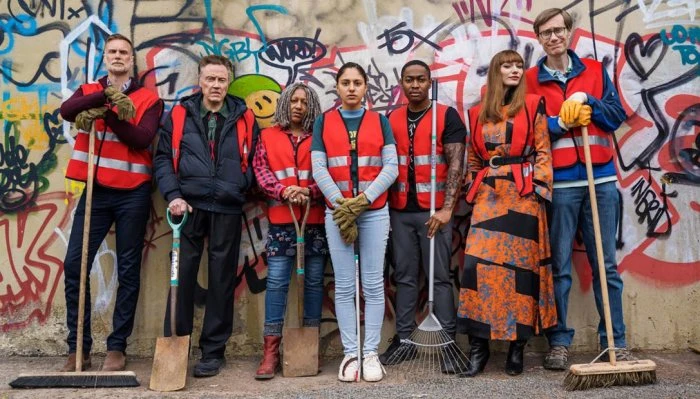
None of this detracts from the fact that The Outlaws is an entertaining show with engaging characters. If it pulls its punches on the dramatic side, it could be argued that it is only a comedy - but that is not entirely true: having introduced serious dramatic themes, it is obliged to take them seriously. At least it has left itself plenty of room to explore them more in the second season. The rather unlikely plot about a bag of stolen drugs money already seems irrelevant. The real interest is finding if whether the eight principals will find ways through the problems of their everyday lives. We have come to care enough about them to hope that they do.
Review: John Winterson Richards
John's Website can be found here: John Winterson Richards
Seen this show? How do you rate it?
Seen this show? How do you rate it?
Published on November 23rd, 2021. Written by John Winterson Richards for Television Heaven.


